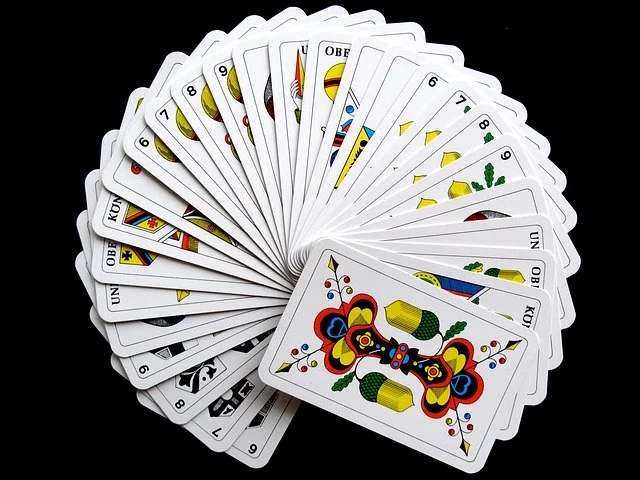Card games for kids can help build confidence in math, reading and strategy while encouraging one-on-one time with parents or healthy competition and teamwork among siblings.
Memory and concentration skills will benefit greatly from playing this quick and simple card game, which requires both speed and attention for success.
1. Go Fish
Go Fish is an engaging card game perfect for young children. This fun social and learning game encourages number recognition and counting skills through hands-on play, providing children with plenty of social interaction as they grow their knowledge of numbers.
Each player in a three or more player game receives seven cards; otherwise two people only are dealt five. The first player to draw and show their top card to all other players may request that another of their ranks match what was shown; if this request is fulfilled they show it back and add that card to their hand. If one does match, players may then ask other players for help matching any matches which may exist within their hand, revealing it back out for discussion by all.
Families looking to maximize the educational value of card games for elementary school-aged children can modify the rules so that matches must be made between only two cards instead of four, making the game more challenging and keeping children engaged for longer while helping them focus on reading sight words.
2. Crazy Eights
Crazy Eights is an accessible card game perfect for children of all ages to learn and enjoy, similar to Uno but using standard playing cards instead. Children can practice counting and strategy skills while discovering the optimal ways to discard cards from their hand.
For an additional challenge, play with two or more players using two decks and require them to draw cards when none remain playable or allow them to announce when their last card has been played. Also consider including rules requiring them to draw when their hands become empty as well as rules mandating when their last card has been revealed.
This app boasts an intuitive user experience with a fun professor-type character guiding players through turns. He may seem silly at times but that only adds to its charm! For the first time I’ve ever witnessed an app keeping track of total cards left in player hands after each round – giving an extra depth to this experience!
3. Slap Jack
Slap Jack is an easy card game that challenges hand-eye coordination, perfect for children of all ages and perfect for parties of any size – two players or an entire class can join together using standard deck of cards (without jokers).
Distribute the entire pack of cards face down among each player. Without looking, each person places their top card face-up in front of themselves to form the center pile – the first player who manages to hit a Jack wins that pile and adds it to their own collection of cards.
Younger students can be given an added challenge when playing this card game by adding different card formats to it. Start with number Slap Jack as an introduction, to help children review numbers 0-9 before moving on to other formats as their skills increase. It makes an excellent partner math center activity or small group effort focused on number recognition.
4. S-P-O-O-N
This card game brings learning equivalents alive in an exciting, engaging manner that students love! Break your class into small groups, providing each group with game cards and spoons (you will need one less spoon than there are players). When someone makes three-card matches, he or she races to collect one of these spoons – the first person doing so wins that round, and moves onto making new matches until another three-card match comes along and grabs that spoon first! This ups the challenge level, particularly for groups needing extra practice with concept; additionally it sparks discussions regarding why certain cards should be swapped or swapped out for others.







More Stories
How to Create a Welcoming Atmosphere in a Casino
Enhancing the Player Experience in Casino Hospitality
Which Country Has the Highest Gambling Losses?